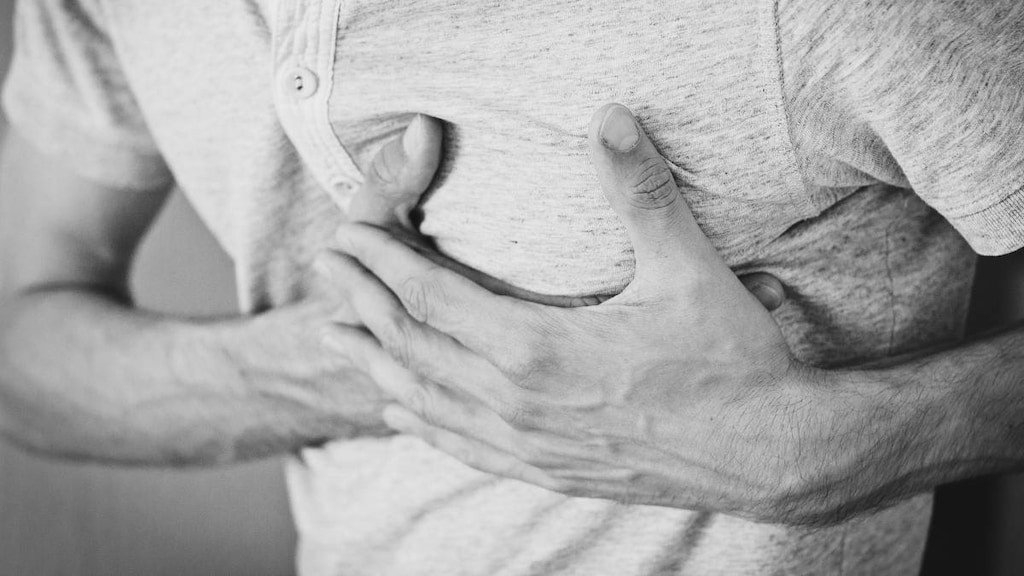
Pulmonary hypertension is a type of high blood pressure that affects your lungs and the right side of your heart. If your blood pressure is high, no matter what the cause, your heart has to work harder to pump blood, which leads to the weakening of the heart muscle and heart failure. There are five main types of pulmonary hypertension (see below).
What causes pulmonary hypertension?
There are two sides of our heart and each side has an upper (atria) and a lower chamber (ventricle). Blood comes into the right atrium of our heart and passes through the right ventricle which pumps blood to our lungs. Oxygenated blood then returns into the left atrium to be pump by the left ventricle around our body.
The increase in blood pressure associated with pulmonary hypertension causes changes in the cells that line the pulmonary arteries, making them stiff and thick, and sometimes extra tissue may form. Inflammation may also occur.
Pulmonary hypertension is classified into five different types, depending on the cause.
1. Pulmonary arterial hypertension
Causes include:
- Specific gene mutations (heritable pulmonary arterial hypertension)
- Drugs, such as methamphetamines, toxins, interferon alfa, and sofosbuvir
- Congenital heart disease (such as Eisenmenger syndrome)
- Medical conditions such as HIV, chronic liver disease, scleroderma
- Unknown causes.
2. Pulmonary hypertension caused by left-sided heart disease
Causes include:
- Heart disease that affects the left side of the heart, such as mitral valve disease or aortic valve disease
- Failure of the left ventricle.
3. Pulmonary hypertension caused by lung disease
Causes include:
- COPD, such as emphysema
- Lung diseases, such as pulmonary fibrosis
- Sleep disorders, such as sleep apnea
- Long-term high-altitude exposure in people with other risk factors for pulmonary hypertension.
4. Pulmonary hypertension caused by blood clots
Caused by pulmonary emboli in the lungs.
5. Pulmonary hypertension caused by other conditions
This type of pulmonary hypertension may be caused by:
- Blood disorders
- Conditions that affect several organs in the body, such as sarcoidosis
- Metabolic conditions
- Cancer.
What are the symptoms of pulmonary hypertension?
Early symptoms of pulmonary hypertension may not be noticeable or are nonspecific such as general tiredness or shortness of breath while exercising. Symptoms get worse as the disease progresses and may include:
- Shortness of breath (dyspnea) at rest
- Extreme fatigue
- Dizziness or fainting spells
- Chest pain or pressure
- Swelling in the extremities (such as ankles and legs) and eventually in your abdomen
- Blue tinge to your lips or skin (this is called cyanosis)
- Heart palpitations or a racing pulse.
How is pulmonary hypertension diagnosed?
Diagnosis can be difficult as the condition may resemble other heart and lung conditions. Your doctor will conduct a physical examination and ask you about your symptoms. Several tests may be ordered, such as:
- An echocardiogram
- Chest X-ray
- Electrocardiogram
- Blood tests
- CT or MRI scan
- Pulmonary function tests
- Polysomnogram
- Ventilation/perfusion scan
- Biopsy
- Genetic testing.
What is pulmonary hypertension treated?
The severity and prognosis of pulmonary hypertension varies depending on the cause. Some forms are not treatable, although treatment can improve symptoms and quality of life. Treatment may include:
- Vasodilators
- Calcium channel blockers
- Endothelin receptor antagonists
- Phosphodiesterase inhibitors
- Soluble guanylate cyclase stimulators
- Anticoagulants
- Digoxin
- Diuretics
- Oxygen
- Catheterization
- Surgery
- Lung or heart-lung transplantation.




